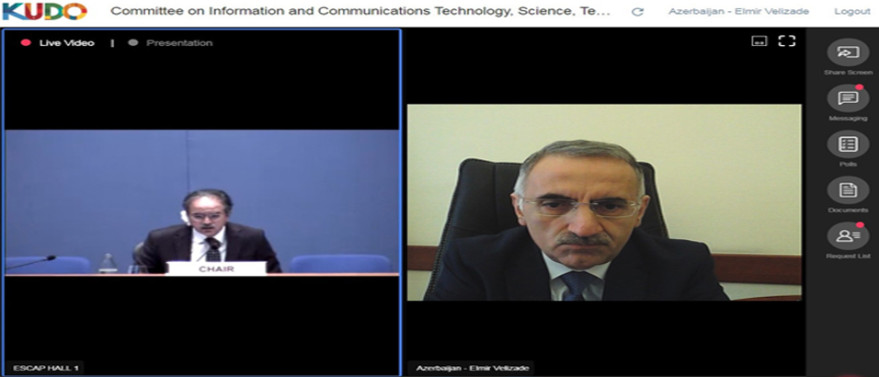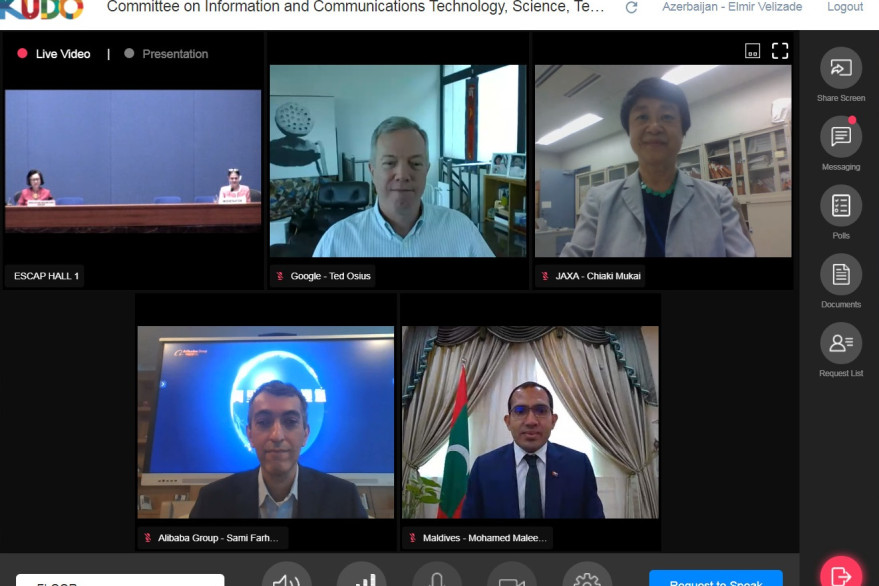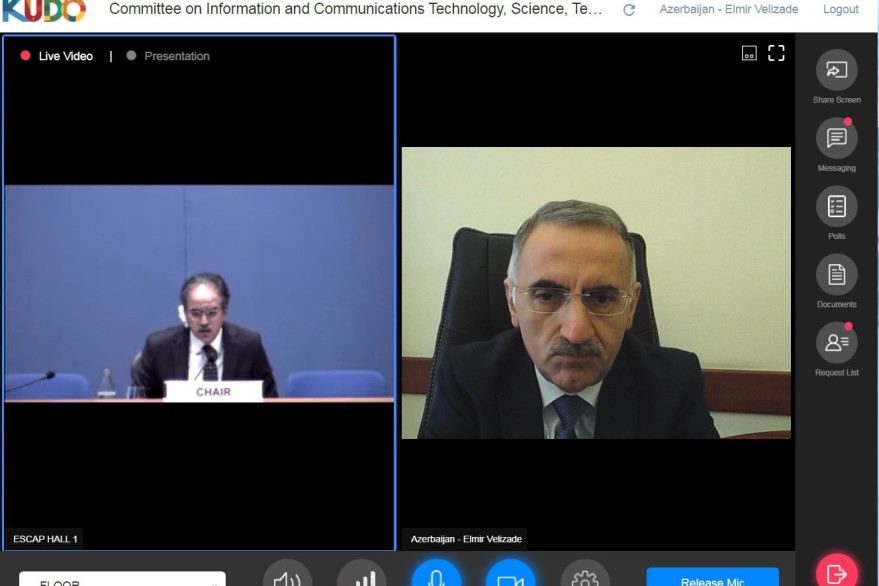3rd session of UNESCAP Committee on ICT, Science, Technology and Innovation held

The 3rd session of the Committee on Information and Communication Technology, Science, Technology and Innovation of the United Nations Economic and Social Commission for Asia and the Pacific (UNESCAP) was held.
It should be noted that this event is organized every two years as the highest level meeting of the organization in this area. Due to the pandemic, this year’s session was held online.
The meeting was attended by representatives of 53 member countries, as well as officials of the UNESCAP Secretariat and other international organizations and institutions.
At the event, the Republic of Azerbaijan was represented by the Ministry of Transport, Communications and High Technologies.
Organizational issues were first considered at the conference, which was held in an online format, and the chairman and five deputies of the meeting of the Steering Committee were elected. Azerbaijani representative Elmir Velizade was also elected deputy chairman.
The two-day event discussed UNESCAP initiatives to use technologies during the pandemic in the Asia-Pacific region and eliminate the digital divide in the region.
In addition, the measures taken in the region to implement the Asia-Pacific Information Superhighway (AP-IS) initiative, the implementation of the Action Plan for 2019-2022 and the experience of countries in this area were discussed.
Speaking at the meeting of the Steering Committee, Deputy Minister Elmir Velizade provided detailed information on our country’s policy in the field of ICT development, the ongoing activities, initiatives and international projects, the initiator and participant of which is Azerbaijan. The participants were informed about the space potential of our country, the modernization of telecommunications infrastructure, the use of cloud technologies, e-government solutions and other comprehensive measures taken in other areas.
In conclusion, the final report of the event was adopted. The document contains a number of recommendations for consideration by the United Nations Economic and Social Commission for Asia and the Pacific and the implementation of possible measures to resolve them. Recommendations include issues such as using space technologies to achieve the Sustainable Development Goals (SDGs), increasing investment in infrastructure networks to bridge the digital divide, providing support to member countries in developing appropriate strategies and roadmaps, and promoting knowledge sharing and cooperation in areas of science, technology and innovation in the region.


